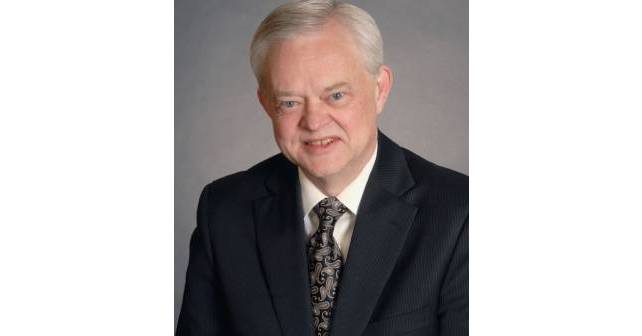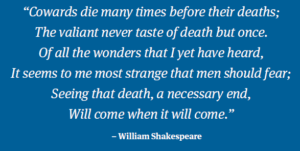
The first time I met Dr. Greg Henry, he promptly informed me that he had shoes and belts older than me. Not knowing whether to laugh or be intimidated, I stared at him blankly and he chuckled. He quickly took me under his wing. Beyond his professional achievements, Greg was revered for his larger-than-life personality, sharp wit, and generous mentorship. He believed that medicine was as much about humanity as it was about science, emphasizing the importance of compassion, communication, and connection with patients.
Explore This Issue
ACEP Now: Jan 01 For those of us who had the privilege of knowing him, he will be best remembered as a philosopher, curmudgeon, stand-up comedian, mentor, and self-proclaimed “junkyard dog” of emergency medicine. A dynamic and engaging speaker, he could blend humor with pragmatism—sometimes hurling insults and quoting Shakespeare in the same breath.
For those of us who had the privilege of knowing him, he will be best remembered as a philosopher, curmudgeon, stand-up comedian, mentor, and self-proclaimed “junkyard dog” of emergency medicine. A dynamic and engaging speaker, he could blend humor with pragmatism—sometimes hurling insults and quoting Shakespeare in the same breath.
Many of you have your favorite “Henry-isms.” I believe Greg would want to give us some last provoking thoughts and laughs, so I will share some of my favorites.
- “The white blood cell count is the last refuge of the intellectually destitute.”
- “The biggest impediment to the correct diagnosis is the previous diagnosis.”
- “There are three great lies in life—the check is in the mail, size doesn’t matter, and all systems reviewed and otherwise negative.”
- “Medicine is show business for ugly people.”
- “You can call me a bad husband. You can call be a bad father.” (Neither of which were true.) “But don’t you ever call me a bad doctor; now I’m offended.”
- “When a patient bounces back, they are giving you another chance to get the diagnosis right. If someone comes to the ED three times, then admit them. I don’t care if it’s the pizza guy. If he comes to the ED three times, I admit him.”
- “To diagnose a stroke: Watch them walk. Listen to them talk. Look at their eyes. Your neuro exam is never done until you’ve watched them walk.”
- “In medicine and life, don’t ask questions you don’t really want to know the answer to. I’m happily married … so why would I ask my wife if she’s cheating on me?” (She wasn’t, it was just part of his humor.)
- “The mortality rate in this country has not changed—it is still one death per person.”
- “Every time I put on the [white] coat, I stop for two minutes. I stop for two minutes and remember Galen and Hippocrates. I pick up the coat: ‘To whatever house I shall enter, it shall be for the benefit of the sick.’ At that moment I am Doctor of Medicine; I carry with me a 2,500-year tradition, and shame on me if I do not carry it out with dignity for the next eight hours. My problems are not the patient’s problems. For that period of time, I am the agent and servant of the patient—I am proud to be the servant of the sick. I put on that coat and I’m a better person. All my petty prejudices should disappear when the coat goes on. That’s what the coat is all about.” —James Mills, MD, Memorial Lecture, ACEP 1998 Scientific Assembly.
Pages: 1 2 3 | Single Page





6 Responses to “Tuesdays with Dr. Greg Henry: A Final Farewell (1946-2024)”
January 17, 2025
Todd B Taylor, MD, FACEPNicely done Gillian!
Greg touched so many lives & in ways only he could.
I will always cherish the moments I spent with him, often “Holding Court”.
Too many aphorisms to count, here is the most practical one for me: “All those journals you have laying around that you plan to read someday . . . throw them away. Life is too short & you will learn more spending time with people.”
May you rest in peace my friend.
January 26, 2025
Robert E. Suter, DO, MHA, FACEPWonderful and amazing tribute Gillian!
You captured so many of Greg’s brilliant medical “aphorisms” which many of us still share with students and colleagues. They really empowered him to be one of the most beloved emergency physicians in the world in spite of sometimes pushing the envelope. Greg had an amazing power to say things that, if said by others, would result in a riot and instead of being angry the audience would roar in laughter!
Working with Dr. Henry outside of ACEP, as an employee of the Group he was one of the partners in, I saw another side of him that taught me a lot. We all know that Greg loved the limelight, but in our Group, where Greg was not the CEO, he was reserved and respectful of his partners. The consummate thespian, Dr. Henry knew when he was the lead and when he was a supporting actor and played his part like the true professional that he was.
Greg Henry spent his professional life advancing the the cause of emergency medicine, and is most deserving of a prominent spot on that noblest of shrines wherein his glory is laid up to be eternally remembered. Rest in Eternal Peace my noble friend and mentor….
January 26, 2025
Mark L DeBardA moving and deserved tribute. Nice job, Gillian!
January 26, 2025
Louis LingGreg had a way of explaining that was short and snappy, crisp and memorable, sort of like him. Gillian has an eloquent way of capturing his essence and spirit. Also sort of like him. Thank you.
January 27, 2025
Lenard Kerr, DO, FAAEMA very amazing tribute!!!!
I will never forget attending one of his lectures during residency at Mt. Clemens’s General. He took the very dry topic of medical legal medicine and brought to the forefront of Emergency Medicine. Having discussions with him over the years at High Risk Emergency Medicine, ACEP, and numerous other conferences was always a highlight. I do not know what else can be said about Risk Management Monthly. I still use some of the first podcasts and teaching topics to residents that still hold true today. From RMM, several medical legal programs have grown keeping Emergency Medicine evolving through the legal quagmire future. And who, who can forget….. Wine of the Month.
He will be missed tremendously!!!
February 6, 2025
Joshua Solano, MDDr. Greg Henry with his style and wit was an incredible teacher of EM and life. I remember listening to his lectures on EMRAP and learning a lot of art of medicine from him. Thanks for this tribute.